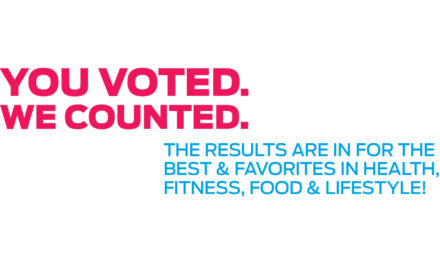By Tammy McCulley, M.D.
Early in my career, I had the pleasure of speaking with Jerome Bettis, a six-time Pro Bowl and two-time first-team All-Pro football player, about exercise-induced asthma. Many of you may know him as “the Bus,” a talented running back for the Pittsburg Steelers, but what you may not know is that he suffered from severe asthma. He was very open about his problematic asthma and its impact on his performance. He humbly admitted to not complying with his treatments, which, on several occasions, resulted in him being carried off the field on a stretcher.
Approximately 8% of Americans experience exercise-induced asthmatic symptoms, including shortness of breath, chest pain/ tightness, audible wheezing, and/or coughing. Some may notice a delayed response in these symptoms (referred to as “locker room cough”), but the majority experience symptoms early in their workouts, which limits their ability to maintain peak performance. These symptoms also limit training and often leave an athlete feeling under-conditioned compared to their peers. I’ve seen this in cyclists who always seem to be in the back of the pack or struggle during a race, unable to maintain their performance due to breathlessness and fatigue.
Surprisingly, asthma is the most common chronic condition experienced by Olympic athletes. An estimated 15% of Olympians and as high as 55% of elite athletes battle with asthma. Famous athletes include David Beckham, Jackie Joyner-Kersey, Kristi Yamaguchi, and Greg Louganis. I often show pictures of these athletes to my teens struggling with symptoms in the pool, on the field, on the ice, or on the court. Seeing elite athletes who face the same condition and continue to excel is very encouraging.
So, what is Asthma? Asthma is a chronic condition of the airways marked by swelling, inflammation, bronchospasm (twitchy airways), and mucous production. If poorly controlled, asthma can result in further airway obstruction, long-term scarring, frequent ER visits, and even death. Exercise can be a trigger, but other triggers include allergens, respiratory viruses, strong odors and fumes, cold, dry air, hot weather, and irritants. Strategies for minimizing or controlling these triggers include:
- Early morning workouts during the summer months
- Wearing a scarf or mask when exercising in the cold air, as this will allow the air to be warmed and humidified before breathing into the lungs
- Training indoors on peak pollen days
- Extended warm-up and cool-down periods
- Pretreatment with a rescue inhaler 15 minutes before exercise
Fortunately, we now have very effective medications to control asthma. “Quick relief” medications may be used before exercise and at the onset of symptoms. “Controller” medications include long-acting forms of inhalers, which are used daily to reduce symptoms. Inhaled corticosteroids can have mild systemic side effects; however, their impact is minuscule compared to a steroid pack or a “sinus cocktail.” Another “controller” is a long-acting bronchodilator, which can help keep airways open and relaxed for as long as 6+ hours. And the newest class of medications, “biologics,” are given by injection and target the immune system to suppress the inflammatory process in the airways, resulting in drastically improved asthma control.
The good news is, with all these options, there is no need to continually struggle with asthma, avoid the fulfillment of sports/ exercise, or worry about limited performance. Whether an elite athlete or a recreational enthusiast, seek professional help early if you experience symptoms. Making a correct diagnosis is the first step to breathing easier. I can’t say you will run like Jerome Bettis or Flo-Jo, but you will definitely feel better.
Dr. Tammy McCulley has been serving the Memphis area since 1999. She is board-certified in Allergy & Immunology, Internal Medicine, and Pediatrics. She was the lead author of the Asthma Chapter of the Best Practices of Medicine, along with numerous other publications. Dr. McCulley and her team treat patients in five convenient locations and can be reached at 901.623.3323 or mcculleyallergy.com.







